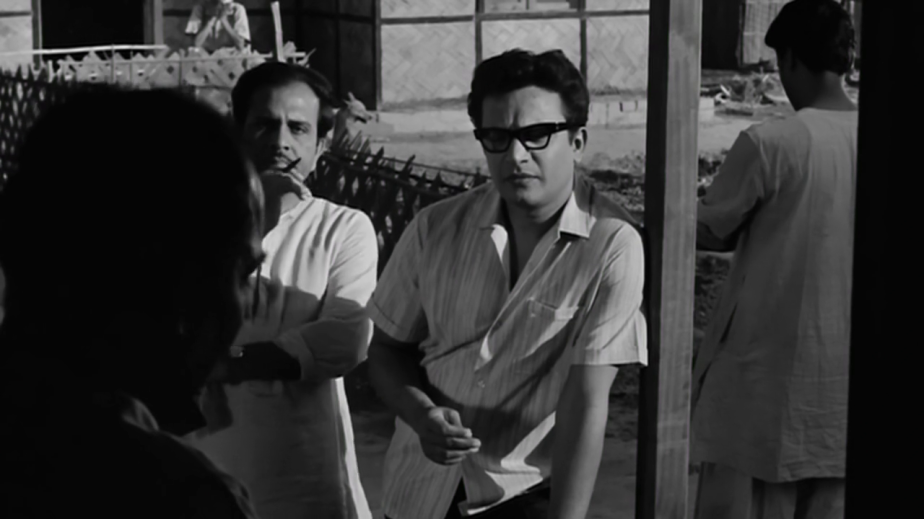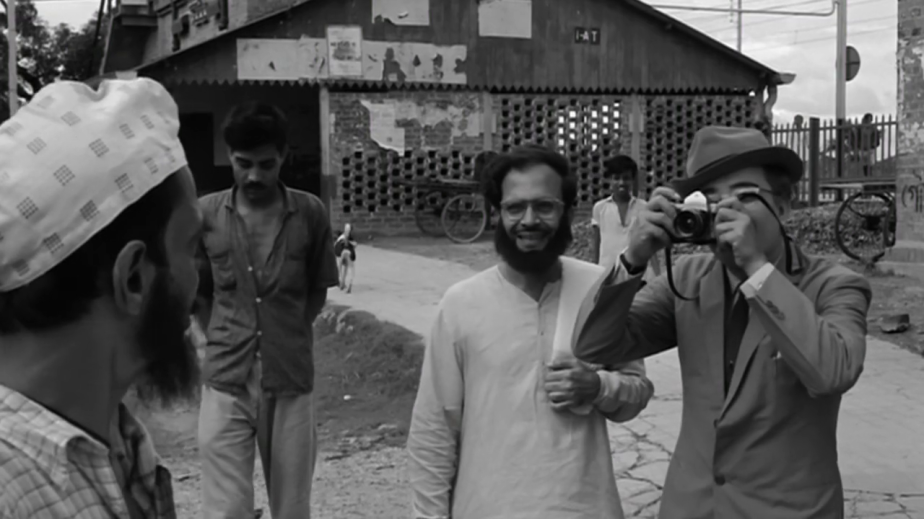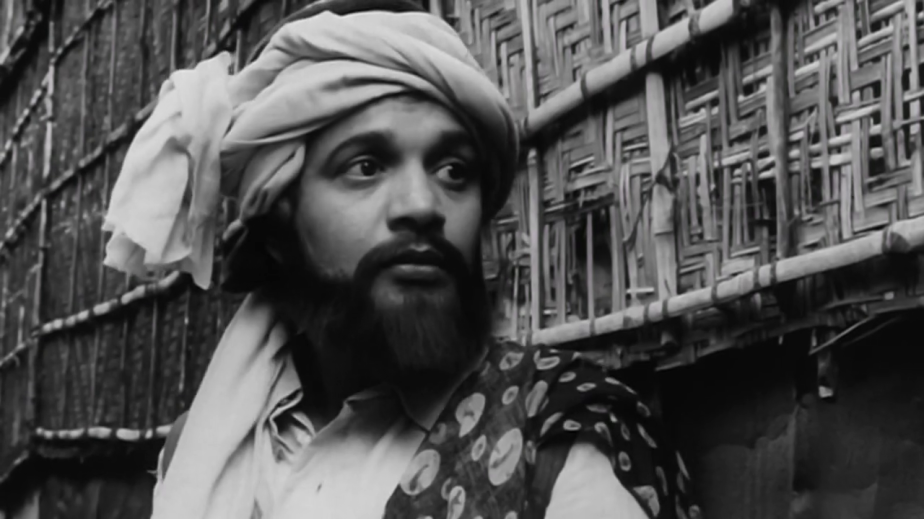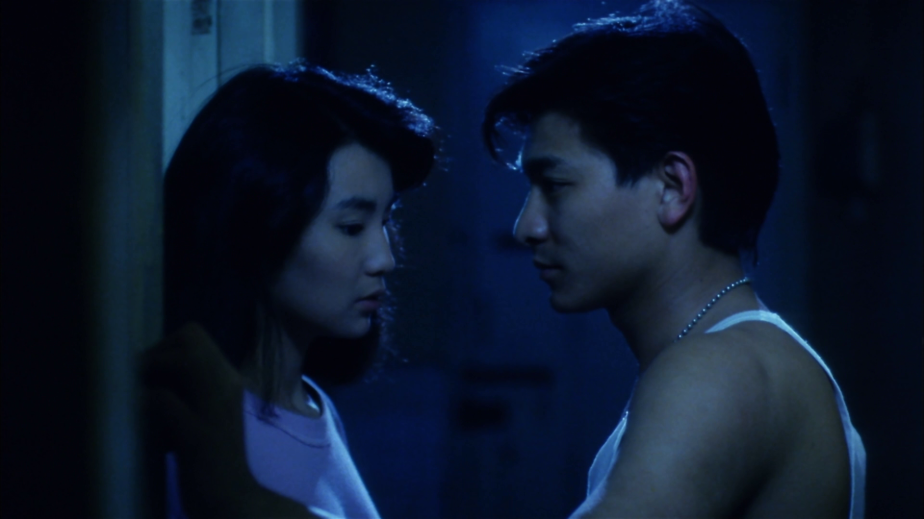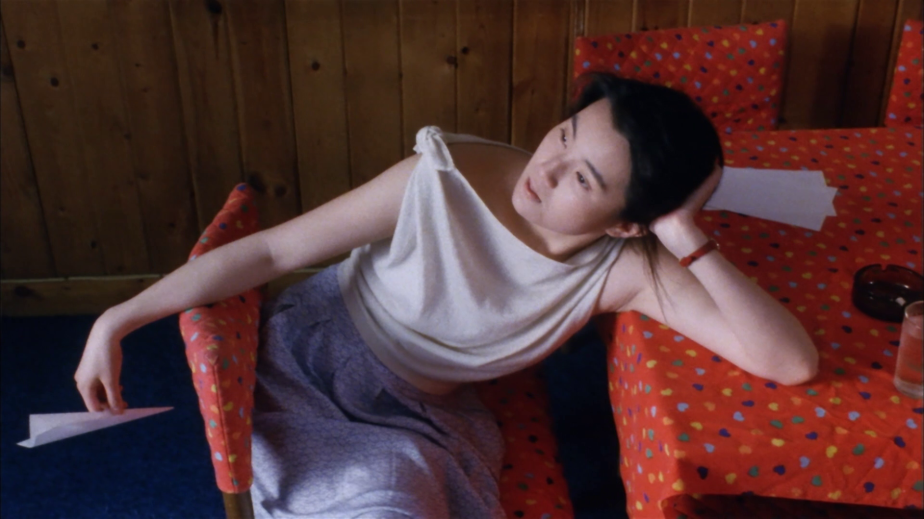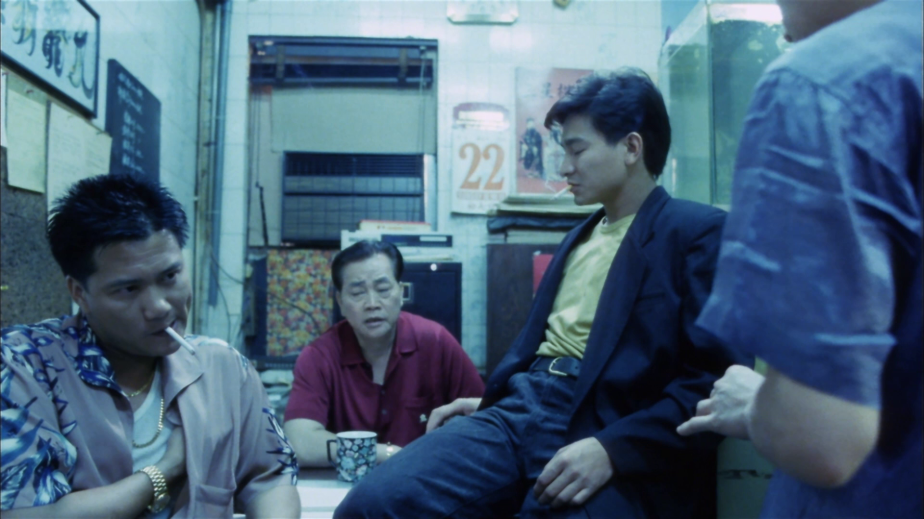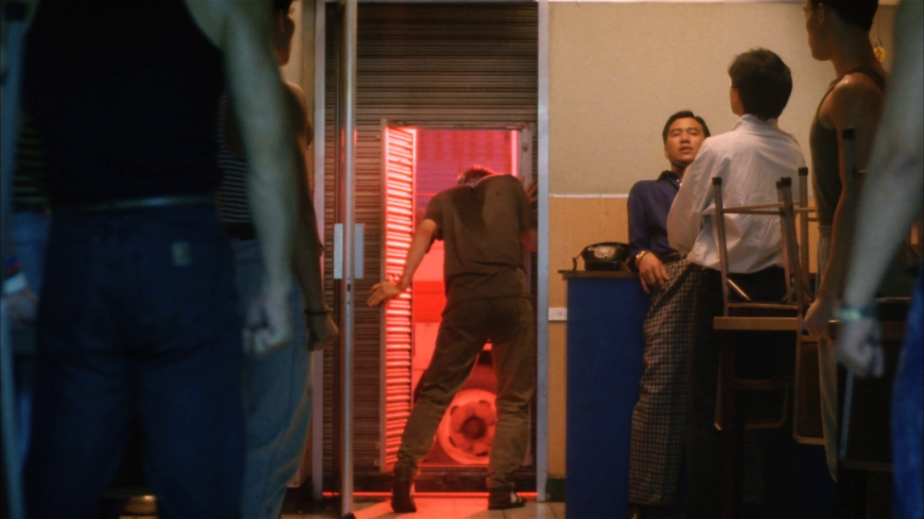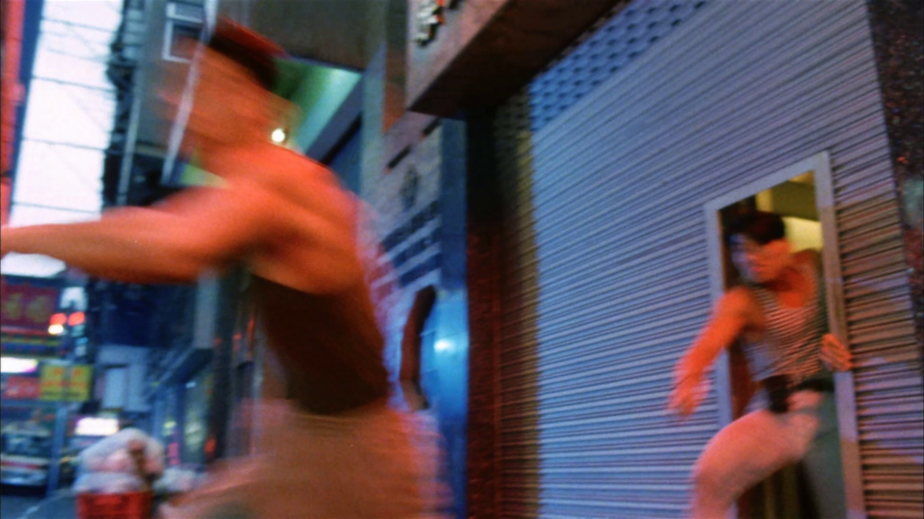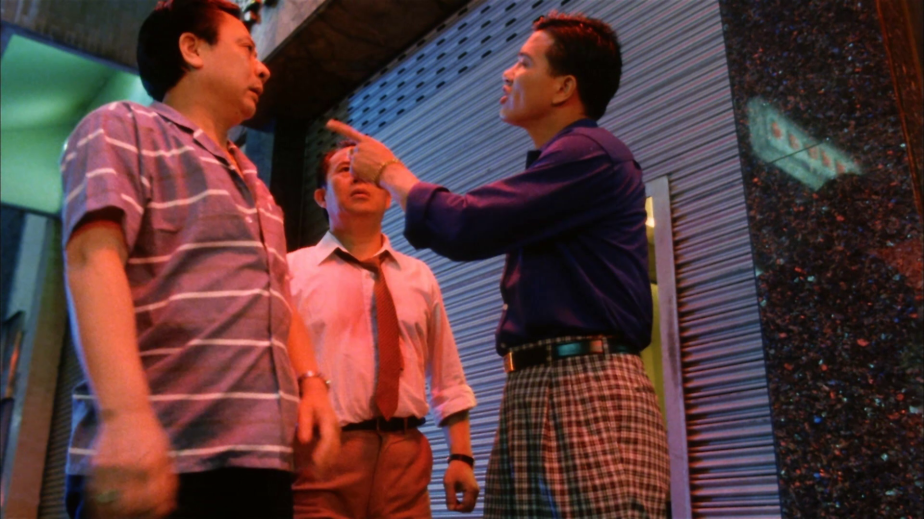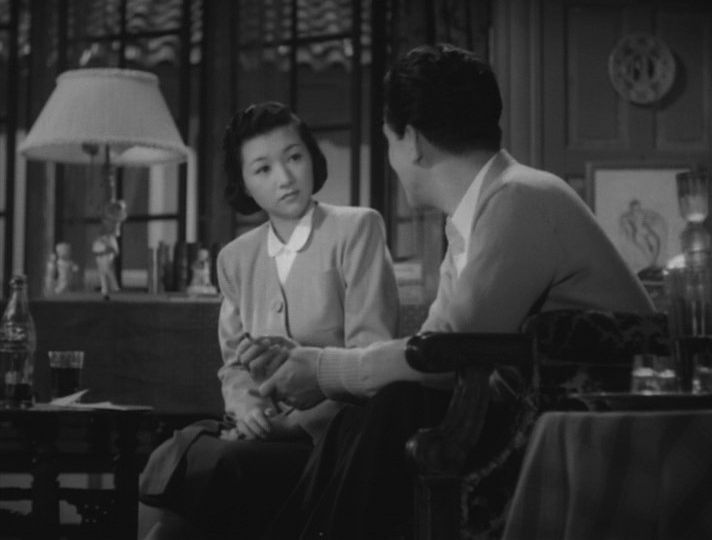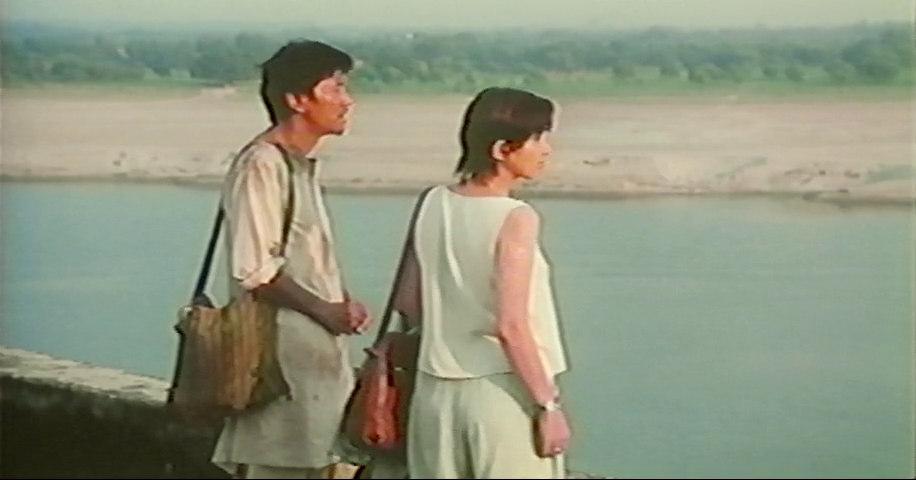
**** (A must-see)
Directed by Kei Kumai
Written by Shusaku Endo and Kumai
With Kumiko Akiyoshi, Eiji Okuda, Hisashi Igawa, Toshiro Mifune and Kyoko Kagawa
In Deep River (Fukai kawa), the story follows three Japanese citizens on a pilgrimage to India. They all have their ve ry own special reasons for making the long journey to Varanasi, the holiest of Hinduism’s seven holy cities, sitting on the banks of the river Ganges.
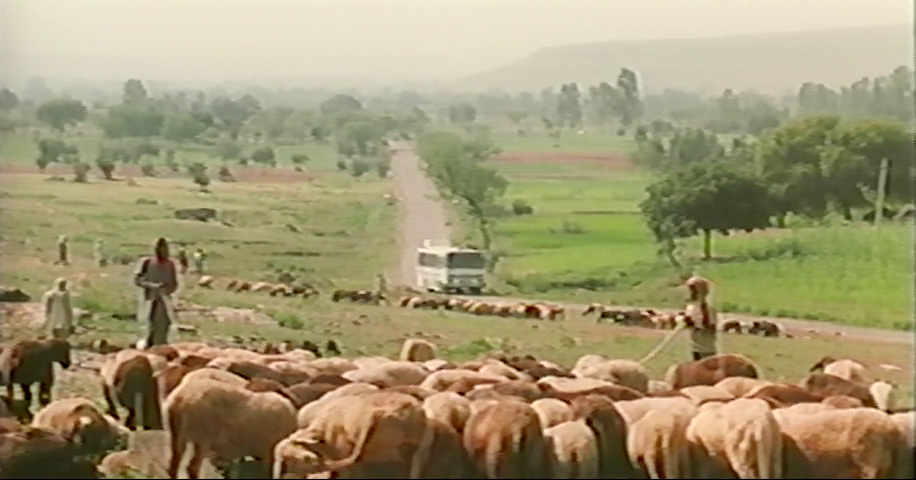
The establishing shots are of rural India, with the second one perhaps providing us with most information. In the foreground are herders performing their daily work. In the background is nature, with its forest and mountains. In the middleground is a bus, the only sign of modern life.
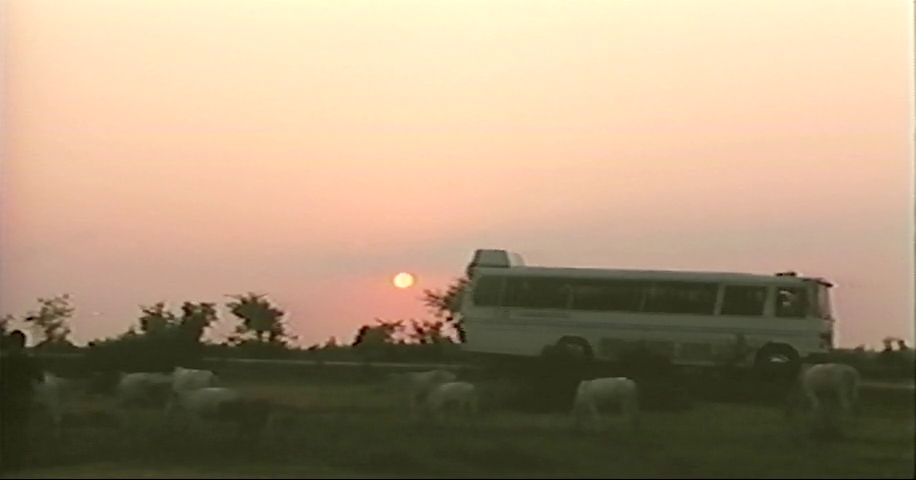
After four such shots, the director cuts into the bus to introduce the passengers it is transporting, but only in visual terms. Three similar exterior shots are once again used before dialogue enters this picture, consisting of an older man merely stating that what he sees is beautiful and reminds him of a Japan of old and what he probably recalls as a simpler way of life. An evening shot tells us the bus journey has been a long and tiring one.
Director Kei Kumai introduces the past of our three main characters simply by using flashbacks, all of them distinctly structured in a linear fashion.
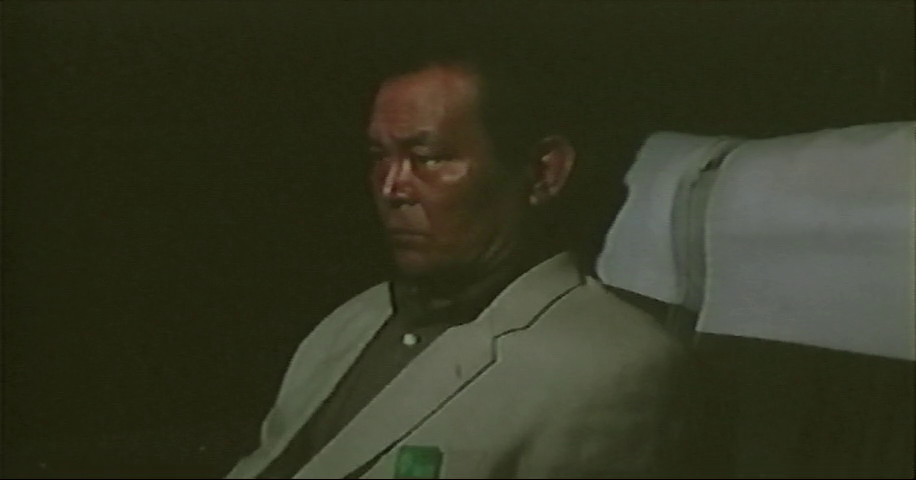
1. Isobe’s flashback (Hisashi Igawa)
The camera closes in on a man, probably in his sixties. We hear the voice of woman. “Look for me. Promise me. Promise me”. We are then shown a hospital, then a number of CT scans. We learn that Isobe’s wife is terminally ill and only has a few months two live. He hasn’t got the heart to tell his wife (Kyoko Kagawa), but she clearly understands what is going on. Things move quite rapidly and the wife passes away. The moment before death, she tells Isobe she is certain she will be born again, and that she wants him to come look for her. The final shot of this flashback is at her funeral, where Isobe finds his wife’s notebook, telling him how to handle the laundry, leading Isobe to cry out at her portrait, reprimanding her for fleeing her house duties.
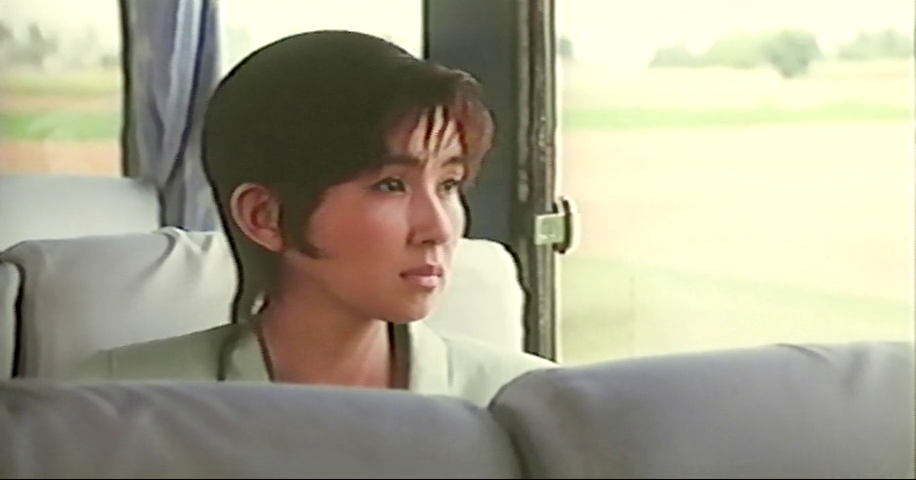
2. Mitsuko’s flashback (Kumiko Akiyoshi)
There is a lot going on in this one. Mitsuko recalls her college life, where she was a bit of a charmer and also a heart-breaker. To her, love is a game, and things go very wrong during a romance with what is referred to as a “true believer”, meaning a Christian. He is apparently nervous and lacks experience, but after getting him drunk they have sex at her place. After a short-time flirt and physical relationship, she confesses he was just one of many men to her, which breaks his heart. A few years later she has entered marriage as a housewife, and she learns that the boy, Otsu, has become a priest in France, and the former couple meet up in Lyon, where he resides in a monastery. Otsu (Eiji Okuda) denies that he decided to become a priest due to the trauma caused by her. He also tells her of his problems at church, stating that the Europeans are narrow-minded, thinking god and evil are opposites, and that voicing his opinion has caused him some problems with the church.
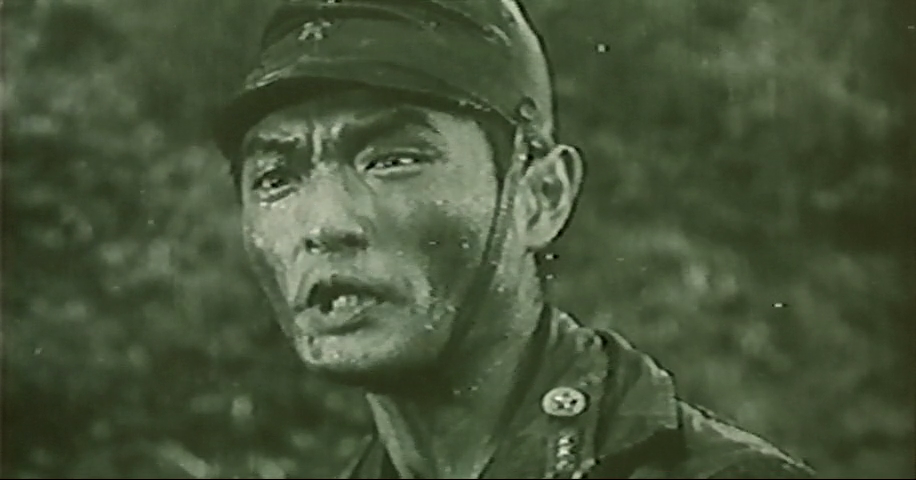
3. Yagusi’s flashback (Yôichi Numata)
Now this is visually notable. We are witnessing what is clearly World War Two, and it wouldn’t be unlikely that the geographic setting is in fact India. It is notable since it’s filmed in black and white and in a docudrama-like way, a clear contrast to the rest of the film. I’m actually nore sure if this is actual film footage from an early war film starring this same actor (I was thinking it might be Listen to the Voices of the Sea from 1950), but I have no idea. He has come to India to pray for his old comrade (Toshirô Mifune), who saves his life during the war, and has since passed away. This was legendary actor Mifune’s last role.
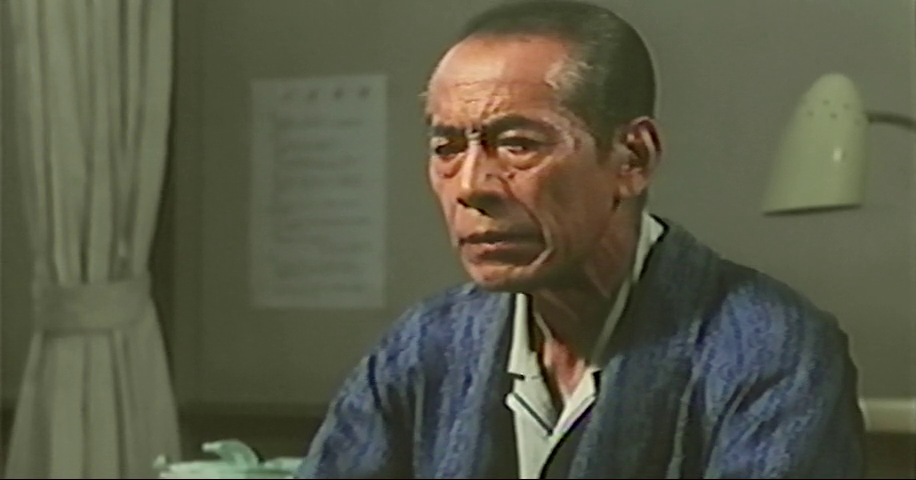
Deep River is a true delight and a must-see for all whose heart beats for Japanese cinema. This story is splendidly adapted and directed by then 66 year old director Kei Kumai. As mentioned, it boasts not only legendary actor Toshirô Mifune but also Kyoko Kagawa, who worked with both Ozu and Kurosawa. The ensemble is stellar overall, with renowned actors getting time and space to do what they do best.
There is one particularly striking scene, where Hisashi Igawa’s character comes to small village to find his reincarnated wife. Where most movies would have taken a wrong turn, Kumai tells it like it is. Isobe more and more realizes the village’s inhabitants do not understand him (since they do not speak English) and he quickly becomes an attraction for the villagers, leaving without any results. It’s very dark, but also so very gently handled.
The people of India as treated with immense respect, and so are their religious beliefs. The same goes for Europe and Europeans, and considering the journey Otsu follows during these two hours, his comments about Europeans or Christians clearly have little to with Kumai’s own thoughts about them.
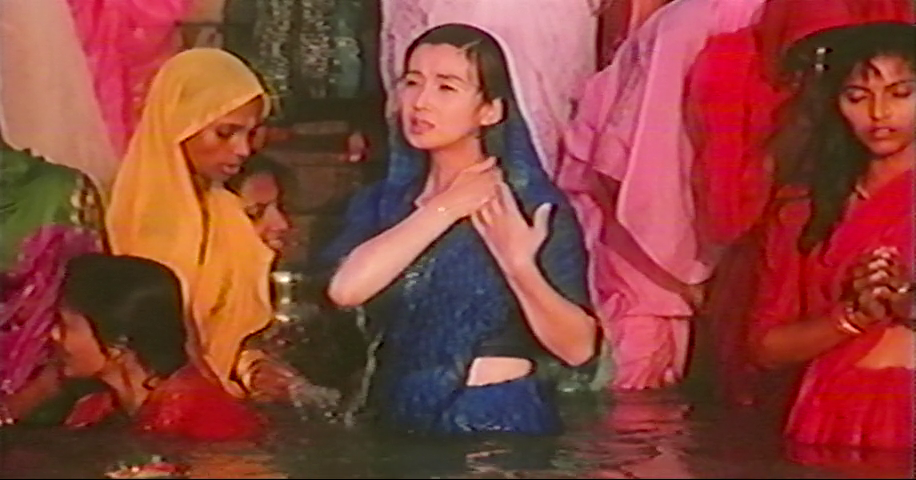
I could finish this review off by stating one is either a Scream of the Ants kind of guy, or a Deep River kind of guy, but I could just as quickly kill that same thesis by stating that I enjoyed them both. However, the connections are obvious, with both films contemplating different religious systems and their affect on its followers, both follow wounded souls, foreigners on a pilgrimage to Ganges, the holy river. And both films ends up with a dip in that same river. Their attitudes to what they portray and thoughts on spirituality differs immensely, however, and Mohsen Mahmalbahf and Kei Kumai couldn’t have handled these topics more differently.
